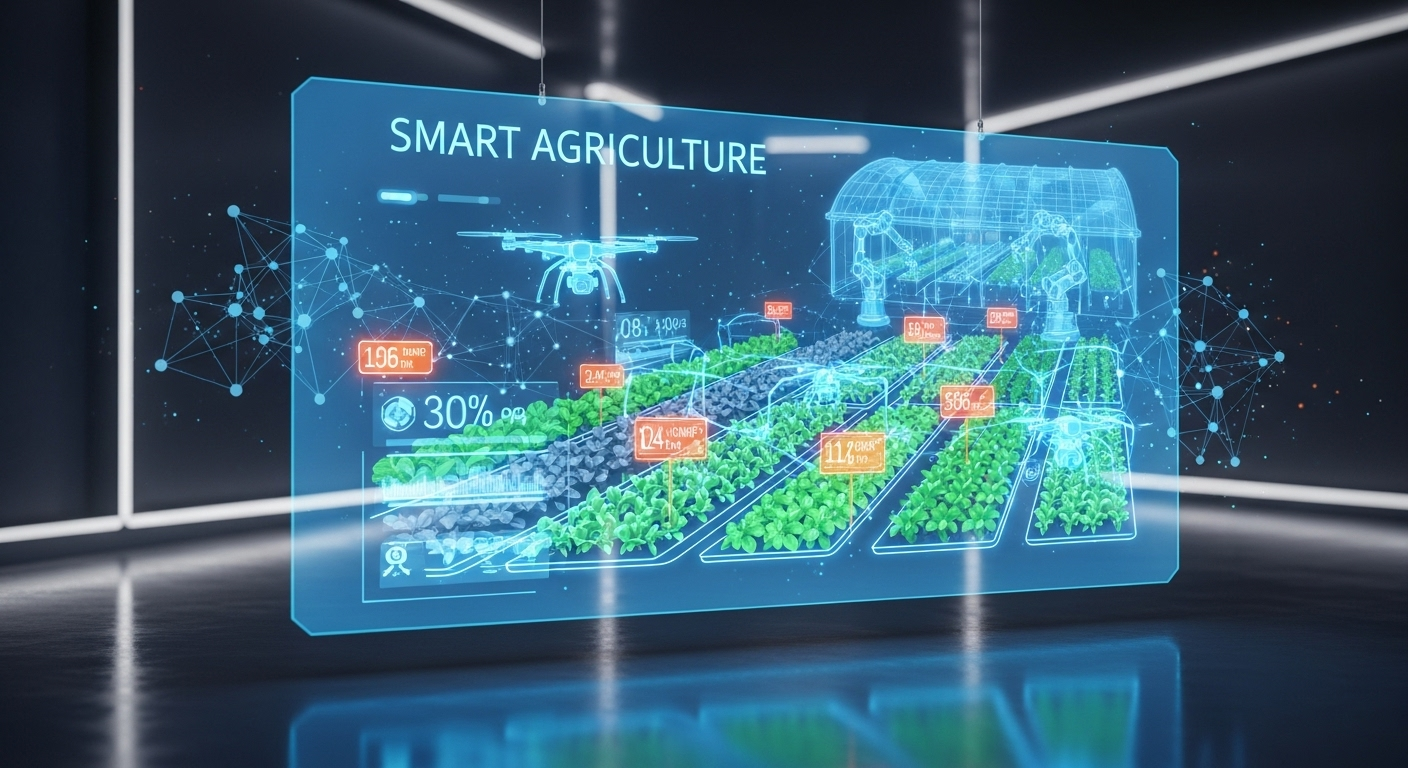
Techy Update
IoT in Agriculture: The Smart Farming Revolution
Vorgath
1 min read
Farming has always been about intuition and hard work. But what if the farm could tell you exactly what it needs? That's what the Internet of Things (IoT) does, and it's sparking a revolution in one of the world's oldest industries.
1. Precision Agriculture: Giving Every Plant What It Needs
Instead of treating a whole field the same, IoT allows for micro-management at a massive scale.
- Soil Sensors: Tiny sensors buried in the fields measure moisture levels, pH, and nutrient content. This data is sent to a central system.
- Automated Irrigation: The system analyzes the data and knows that this specific crop needs a certain amount of water. It then automatically triggers an irrigation system to water only the dry sections of the field, preventing waste.
- Drones and Imaging: Drones equipped with special cameras can fly over crops to identify areas affected by pests or disease, allowing for targeted treatment instead of spraying the entire field.
The result? Farmers use less water, reduce fertilizer and pesticide waste, and get higher crop yields. It's more sustainable and more profitable.
2. Livestock Monitoring: Healthier Animals, Better Products
IoT isn't just for plants. Wearable sensors for livestock are also a game-changer.
- Health Tracking: A sensor on a cow can monitor its temperature, activity levels, and eating habits. A sudden change can alert the farmer to a potential illness days before visible symptoms appear.
- Location Tracking: On large ranches, GPS tags ensure farmers know where their herds are at all times, preventing loss and theft.
3. Smart Greenhouses: The Perfect Environment, Automatically
In a greenhouse, IoT can create the perfect growing conditions 24/7.
- Sensors monitor temperature, humidity, light, and CO2 levels.
- The system automatically adjusts heaters, opens vents, turns on lights, or releases more CO2 to keep the environment optimal for plant growth.
The Smart Farming Revolution isn't about replacing farmers; it's about empowering them with data to make smarter, more efficient, and more sustainable decisions.